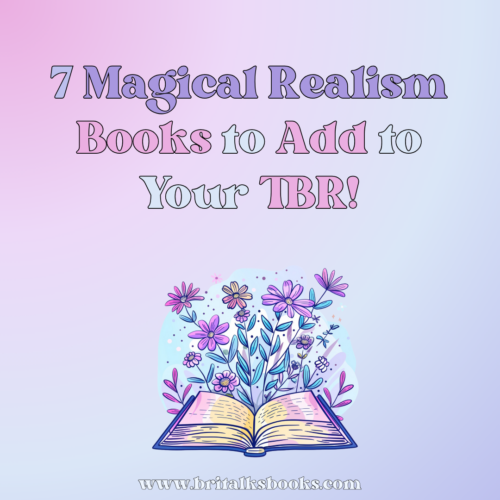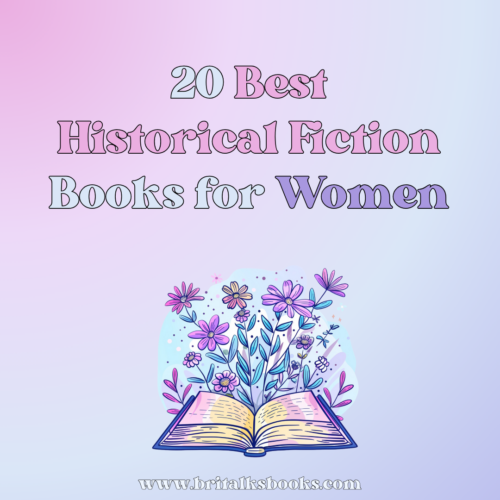In the world of literature, few things are as inspiring as a story centered on a strong female protagonist. These characters not only break boundaries, but they also provide readers with role models who exhibit courage, resilience, and a fierce determination to follow their own path. Whether facing adversity in historical settings or battling fantastical creatures in magical realms, these women embody strength in all its forms—mental, emotional, and physical.
In this post, we’ll explore a selection of books featuring strong female protagonists who leave an indelible mark on readers and the world around them.
1. “The Nightingale” by Kristin Hannah
Set against the backdrop of World War II in Nazi-occupied France, The Nightingale tells the powerful story of two sisters, Vianne and Isabelle, who take different paths of resistance. Vianne, the older sister, stays behind in her small town, trying to protect her daughter and endure the horrors of war quietly. Isabelle, the rebellious younger sister, becomes actively involved in the French Resistance, risking her life to fight the Nazi regime.
Both women display immense courage in their own ways, and Kristin Hannah masterfully highlights the quiet, often overlooked strength of women during wartime. Vianne’s internal battles and Isabelle’s outward defiance remind us that strength doesn’t always come in one form—sometimes it is subtle and nurturing, other times it is loud and unyielding.
2. “Circe” by Madeline Miller
In Circe, Madeline Miller reimagines the story of the infamous witch from Greek mythology, giving her a voice and a story that is both mesmerizing and empowering. Circe is born as the daughter of the sun god, Helios, but she is not revered like the other gods. Instead, she is seen as strange and weak, and she eventually finds herself exiled to the island of Aiaia.
Throughout the novel, Circe transforms from a self-doubting outcast into a powerful, independent woman. Her journey of self-discovery, fueled by her growing mastery of witchcraft, is a compelling exploration of feminine strength, independence, and resilience. Miller’s portrayal of Circe as both a flawed and complex woman speaks to the struggles many women face in finding their true power and identity in a world that seeks to undermine them.
3. “The Hunger Games” by Suzanne Collins
Katniss Everdeen, the protagonist of The Hunger Games, is one of the most iconic strong female characters in modern literature. Forced into a dystopian arena where teenagers must fight to the death, Katniss emerges as a symbol of rebellion and defiance against an oppressive regime. But what makes her stand out is not just her survival skills or her willingness to fight—it’s her compassion, loyalty, and ability to protect those she loves.
Katniss’s inner conflict between protecting her family and leading a revolution highlights the emotional complexity of her character. She is not without fear or doubt, but her resilience in the face of impossible choices shows readers that true strength often lies in the ability to persevere despite the odds.
4. “Jane Eyre” by Charlotte Brontë
Published in 1847, Jane Eyre has long been celebrated for its portrayal of a fiercely independent and strong-willed woman. The story follows Jane, an orphan who grows up in a hostile environment and endures significant hardships before becoming a governess at Thornfield Hall. Despite her challenges, Jane remains true to herself, refusing to compromise her integrity or sacrifice her self-respect for the sake of love or social acceptance.
What sets Jane apart is her ability to rise above societal expectations of women in the 19th century. Her refusal to be subservient or defined by her relationship with Mr. Rochester makes her a timeless example of quiet strength, resilience, and self-respect. Jane’s journey is not just about finding love but also about discovering her own worth, regardless of the obstacles life throws her way.
5. “The Color Purple” by Alice Walker
The Color Purple is a deeply moving story about Celie, an African-American woman in the early 20th century South, who suffers unspeakable abuse and oppression from the men in her life. Despite her difficult circumstances, Celie slowly begins to find her voice and strength through her relationships with other women, particularly the bold and fearless singer, Shug Avery.
Through her letters to God and later to her sister Nettie, Celie transforms from a silent, powerless woman into someone who understands her own worth. Alice Walker’s powerful exploration of race, gender, and the complexities of sisterhood makes The Color Purple a groundbreaking novel, and Celie’s journey toward self-empowerment remains one of the most inspiring depictions of female strength in literature.
6. “The Handmaid’s Tale” by Margaret Atwood
In The Handmaid’s Tale, Margaret Atwood creates a dystopian world where women are stripped of their rights and autonomy in the theocratic Republic of Gilead. The protagonist, Offred, is one of the women forced into sexual servitude as a “handmaid,” valued only for her ability to bear children. Despite the oppressive regime, Offred manages to maintain her sense of self and even dares to hope for escape.
Offred’s internal strength lies in her quiet rebellion—her ability to keep small parts of herself hidden from her captors and her willingness to take risks, however small, in the face of overwhelming oppression. The novel speaks to the resilience of women who, even when stripped of their freedom, find ways to survive and resist.
7. “The Song of Achilles” by Madeline Miller
While The Song of Achilles primarily centers on Achilles, the character of Patroclus’s love interest, it also features Briseis, a woman who represents strength in the face of captivity. As a slave captured during the Trojan War, Briseis experiences intense loss and violation. However, rather than being defined by her victimhood, Briseis emerges as a complex and resilient figure. She remains brave, compassionate, and self-aware, even while navigating the brutality of war.
Though not the main protagonist, Briseis’s story underscores the quiet power of resilience, making her a strong female character in a narrative dominated by male heroes.
Conclusion: The Power of Female Strength in Literature
The beauty of these strong female protagonists lies in their diversity. They come from different backgrounds, time periods, and genres, but what they all have in common is their ability to face challenges head-on and grow through their experiences. These women remind us that strength is not just about physical power—it’s about courage, independence, compassion, and the willingness to stay true to oneself, no matter the circumstances.
Whether you prefer historical fiction, dystopian worlds, or literary classics, there’s no shortage of books featuring strong female protagonists to inspire and empower readers of all ages. These characters, with their flaws and complexities, encourage us to reflect on our own lives and find strength in our own stories.


Leave a Reply